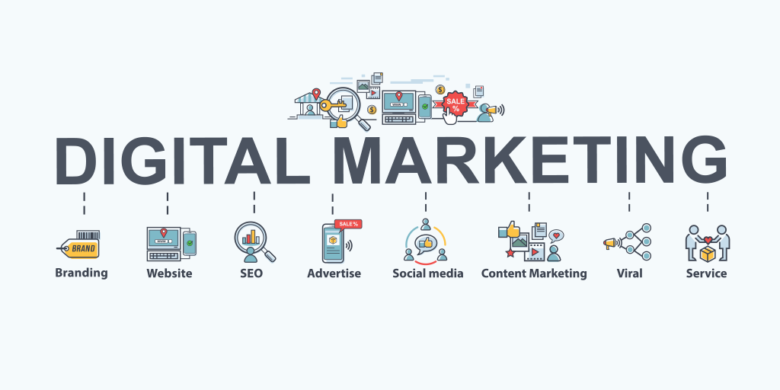In the digital age, businesses need to have a strong online presence to succeed. Digital marketing is the key to this success. With the right digital marketing strategy, businesses can reach their target audience, build brand awareness, and increase sales. In this article, we’ll explore the different aspects of digital marketing and how they can help your business grow.
- Search Engine Optimization (SEO): SEO is the process of optimizing your website to rank higher in search engine results pages (SERPs). By optimizing your website for relevant keywords, you can attract more traffic to your website. This traffic is valuable because it’s made up of people who are actively searching for what you offer. SEO is a long-term strategy that can take time to see results, but it’s worth the effort.
- Pay-Per-Click (PPC) Advertising: PPC advertising is a way to get your website to appear at the top of search engine results pages (SERPs) for relevant keywords. With PPC advertising, you pay each time someone clicks on your ad. This can be an effective way to attract targeted traffic to your website, but it can also be expensive if not managed properly.
- Social Media Marketing: Social media marketing is the process of using social media platforms like Facebook, Twitter, and Instagram to promote your business. By creating engaging content and interacting with your followers,you can build brand awareness and drive traffic to your website. Social media marketing is also a great way to connect with your customers and get feedback on your products or services.
- Email Marketing: Email marketing is the process of sending marketing messages to a list of subscribers via email. This can include newsletters, promotional emails, and other types of content. Email marketing is a great way to keep your customers informed about your business and build relationships with them.
- Content Marketing: Content marketing is the process of creating and sharing valuable, relevant, and engaging content to attract and retain a specific audience. This can include blog posts, videos, infographics, and other types of content. By providing useful information to your target audience, you can establish yourself as an authority in your industry and build trust with your customers.
- Analytics and Reporting: Analytics and reporting are essential components of any digital marketing strategy. By tracking your website traffic, social media engagement, and other metrics, you can measure the effectiveness of your marketing campaigns and make data-driven decisions to improve your results.
In conclusion, digital marketing is a crucial component of any business’s success in the digital age. By implementing a comprehensive digital marketing strategy that includes SEO, PPC advertising, social media marketing, email marketing, content marketing, and analytics and reporting, you can attract and retain customers, build brand awareness, and increase sales.

